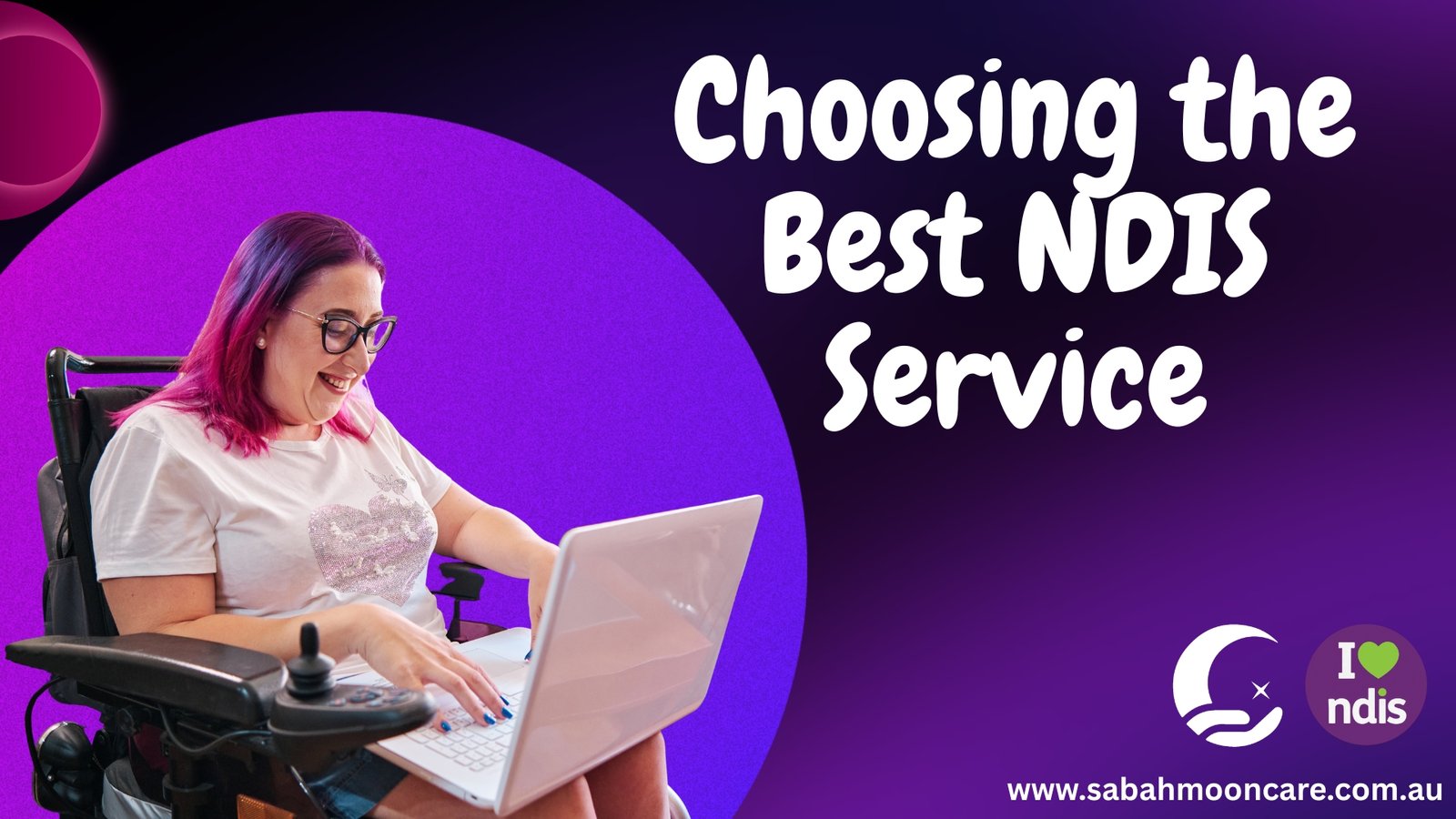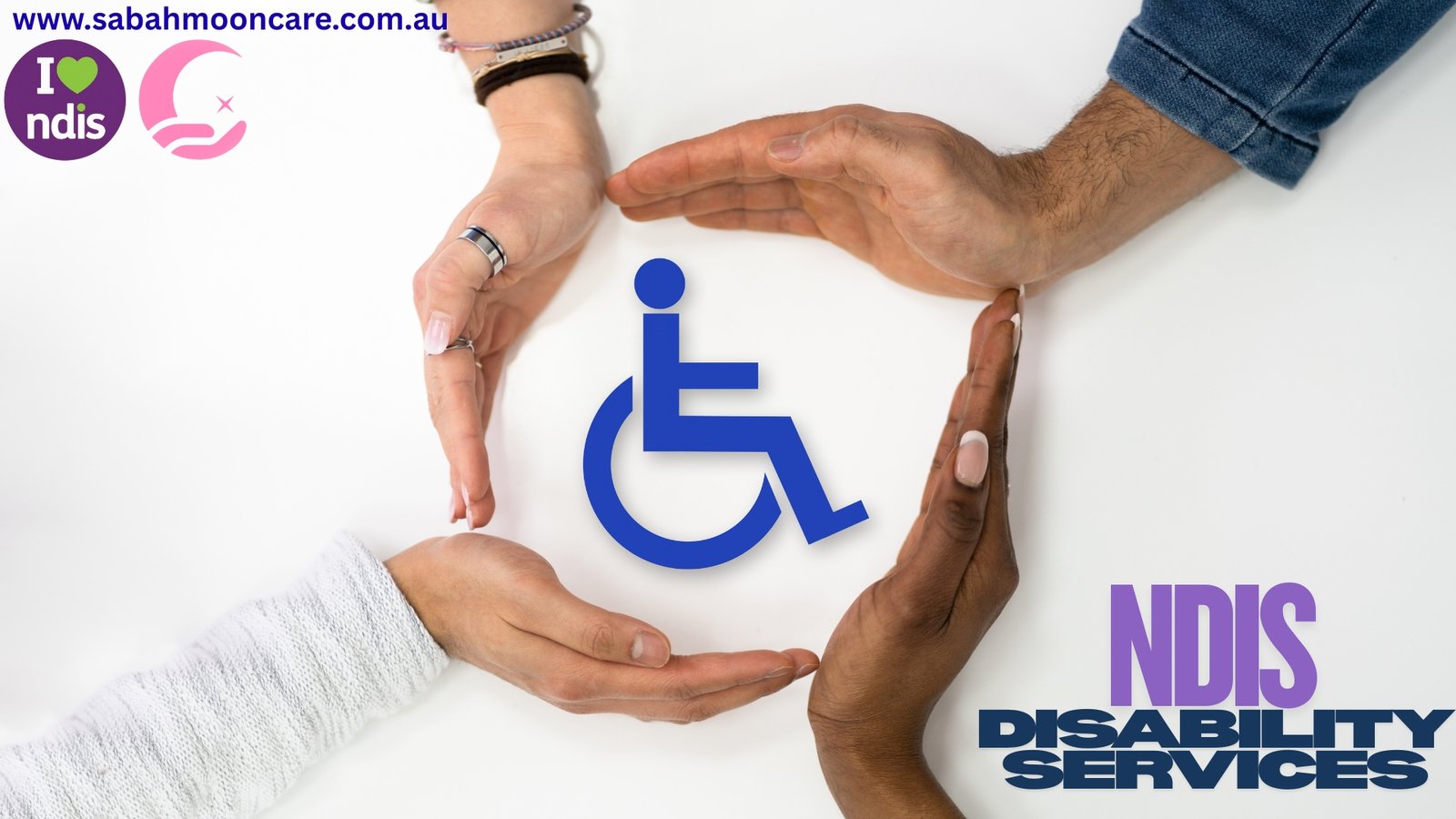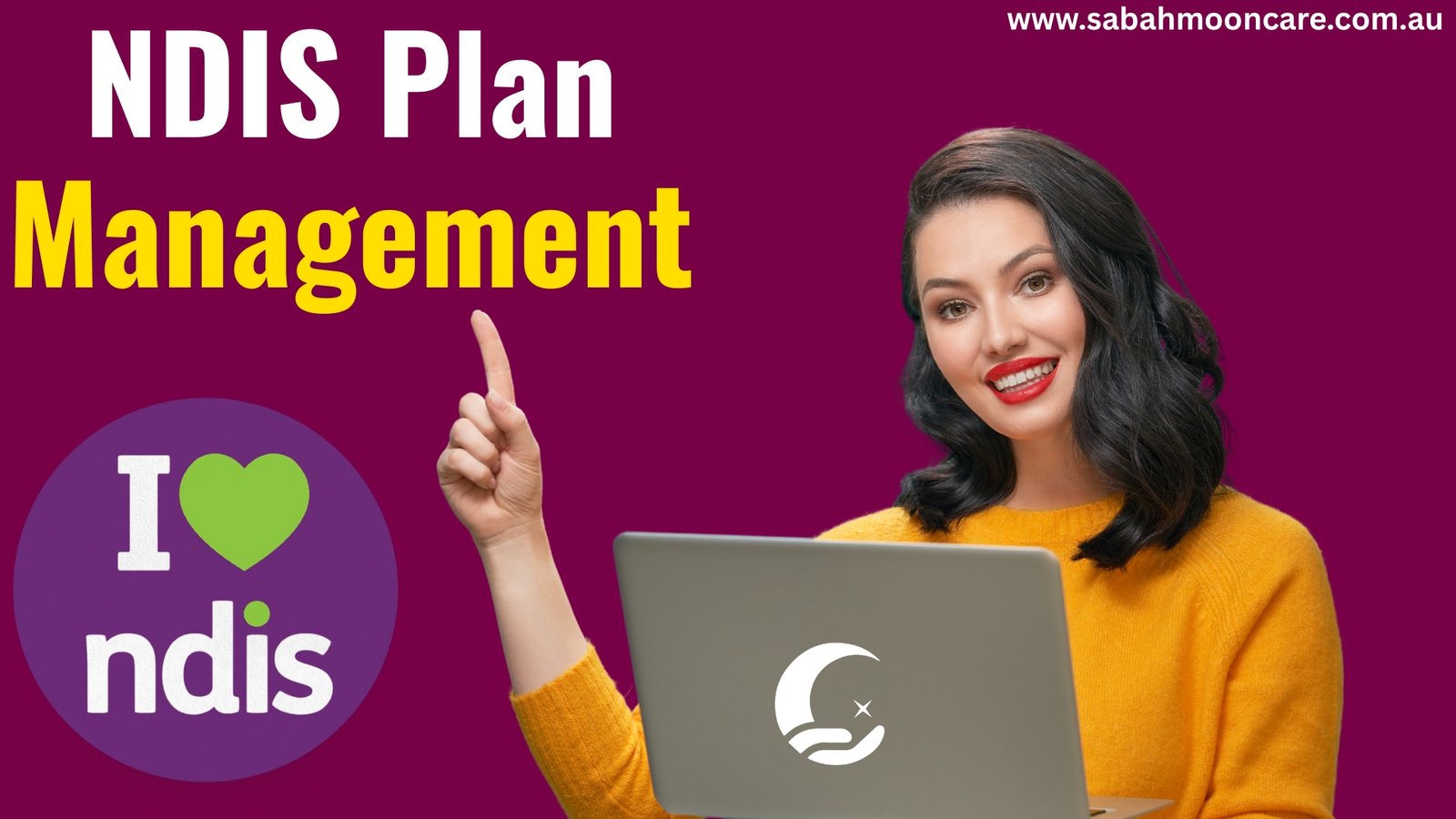What Is an NDIS Service Provider?
An NDIS service provider is an organization or professional approved by the National Disability Insurance Scheme (NDIS) to deliver support services to participants. These providers play a pivotal role in helping individuals with disabilities achieve greater independence, community participation, and personal goals outlined in their NDIS plans.
Definition and Key Responsibilities
NDIS providers are more than just service deliverers—they act as partners in your care journey. Their core responsibilities include:
Personalized Support Planning
- Collaborating with you to design services tailored to your unique needs
- Adjusting support as your goals evolve (e.g., transitioning from school to work)
Quality and Safety Compliance
- Meeting strict NDIS Practice Standards (verified through audits)
- Conducting staff background checks via the Worker Screening Database
Transparent Reporting
- Documenting progress toward your plan goals
- Providing clear invoices that align with NDIS pricing guidelines
Types of Services Offered
NDIS providers typically specialize in these key areas:
A. Daily Living Supports
- Personal Care: Assistance with bathing, dressing, and meal prep
Example: A provider like Sabah Moon Care might help a participant with spinal cord injuries develop morning routines. - Domestic Help: Cleaning, laundry, and home maintenance
- Transport: Getting to appointments or community activities
B. Therapeutic Supports
- Allied Health Services: Occupational therapy, speech pathology, or physiotherapy
- Behavior Support: Strategies for managing challenging behaviors (requires NDIS behavior support certification)
C. Social and Community Participation
- Skill-Building Programs: Cooking classes or money management training
- Recreational Activities: Supported outings to sports events or art workshops
D. Assistive Technology and Home Modifications
- Equipment Provision: Wheelchairs, hearing aids, or communication devices
- Home Adjustments: Installing ramps or bathroom grab rails
Key Stat: Over 70% of NDIS participants use daily living supports, making this the most requested service (NDIS Quarterly Report, 2024).
How to Find Quality NDIS Providers
Choosing from thousands of NDIS registered providers can feel overwhelming. Here’s a proven strategy to narrow your search:
Where to Search
Option 1: Official NDIS Provider List
- How to Use It:
- Visit the NDIS Provider Finder
- Filter by:
- Location (e.g., “Western Sydney”)
- Service Type (e.g., “Personal Care”)
- Languages Spoken (Critical for CALD participants)
- Why It’s Reliable:
- Only lists providers vetted by the NDIS Quality and Safeguards Commission
- Shows registration groups (e.g., if a provider is approved for complex care)
Option 2: Word of Mouth
- Ask:
- Other participants in local disability groups
- Your LAC (Local Area Coordinator) or support coordinator
- Therapists or doctors familiar with NDIS
- Pro Tip:“Look for providers mentioned multiple times—it signals consistent quality.”
Checking Provider Credentials
Before contacting providers, verify:
Registration Status
- Search the provider’s name on the NDIS Commission Register
- Red Flag: Unregistered providers can’t serve plan-managed participants
Specializations
- A provider working with autism may not suit someone with physical disabilities
- Example: Sabah Moon Care specializes in both psychosocial and physical disabilities
Incident History
- Providers must report serious incidents to the NDIS Commission
- Ask: “How many incidents were reported in the last year?”
Evaluating ‘Best NDIS Providers Australia’
Look beyond marketing claims with these tactics:
1. Review Analysis
- Check NDIS provider reviews on:
- Google My Business (Look for detailed comments)
- Independent platforms like Clickability
- What to Spot:
- Recurring praise for staff patience or flexibility
- Complaints about frequent staff changes
2. Service Trial
Many providers offer a trial period. Test:
- Reliability: Do workers arrive on time?
- Compatibility: Is communication clear and respectful?
3. Staff Qualifications
Ask:
- “What training do support workers complete?” (First aid? Manual handling?)
- “Is there a dedicated team for complex needs?”
Case Study: A Melbourne participant chose a provider after verifying all staff had mental health first aid training—critical for her PTSD support.
Next Steps
Now that you understand what NDIS providers do and how to research them, the next sections will cover:
- 5 red flags that signal a poor-quality provider
- Cost comparisons to avoid budget blowouts
- Why Sabah Moon Care’s approach gets results
Action Tip: Bookmark the NDIS Provider Finder to start your search today.
The 5-Step Selection Process for Choosing the Best NDIS Service Provider
Choosing the right NDIS service provider is one of the most critical decisions participants and their families make. This 5-step selection process ensures you find a provider that aligns with your needs, goals, and budget while maintaining high-quality standards.
Step 1: Identify Your Needs
Before researching providers, you must clearly define what services you require.
A. Review Your NDIS Plan
- Understand Your Funded Supports
- Check your NDIS plan for approved budget categories (Core, Capacity Building, Capital Supports).
- Identify which services are funded (e.g., personal care, transport, therapy).
- Set Clear Goals
- Do you need help with daily living?
- Are you looking for skill-building programs?
- Do you require assistive technology or home modifications?
B. Prioritize Your Requirements
- Must-Have Services (e.g., 24/7 support for high-needs participants)
- Preferred Flexibility (e.g., weekend availability, short-notice changes)
- Cultural & Accessibility Needs (e.g., multilingual staff, disability-friendly facilities)
Pro Tip:
*”List your top 3 non-negotiable needs before contacting providers. This helps filter options faster.”*
Step 2: Research Providers Thoroughly
(Secondary keyword: “NDIS registered providers”)
Not all providers are equal. A structured research approach ensures you find the best fit.
A. Use the NDIS Provider Finder Tool
- How to Search Effectively:
- Filter by location, service type, and specializations.
- Check if they support your NDIS plan management type (self-managed, plan-managed, or agency-managed).
- Why Registration Matters:
- Only NDIS registered providers meet strict compliance standards.
- Unregistered providers may be cheaper but lack accountability.
B. Check Independent Reviews
(Secondary keyword: “NDIS provider reviews”)
- Where to Look:
- Google Reviews (Look for detailed feedback, not just star ratings).
- Disability Forums (e.g., Clickability, Facebook NDIS groups).
- Word of Mouth (Ask other participants for recommendations).
- What to Watch For:
Consistent praise for reliability, staff attitude, and flexibility.
Repeated complaints about last-minute cancellations or poor communication.
Case Study Example:
A Sydney participant avoided a poorly reviewed provider after noticing multiple complaints about frequent staff changes—choosing a stable team instead.
Step 3: Compare Shortlisted Providers
(Secondary keyword: “how to choose NDIS provider”)
Once you have 3-5 potential providers, compare them systematically.
A. Key Comparison Factors
| Factor | What to Ask |
|---|---|
| Experience | “How many years have you supported participants with similar needs?” |
| Staff Training | “Do support workers have disability-specific certifications?” |
| Emergency Protocols | “What happens if a worker cancels last-minute?” |
| Pricing Transparency | “Are there hidden charges for travel or after-hours care?” |
B. Conduct Interviews
- Sample Questions:
- “Can I meet my assigned support worker before starting?”
- “How do you handle participant complaints?”
- “What’s your process if my needs change?”
Red Flag Alert:
Avoid providers who give vague answers or pressure you to sign quickly.
Step 4: Check Costs & Funding Compatibility
A. Understand NDIS Pricing Rules
- Hourly Rates: Compare against the NDIS Price Guide (updated annually).
- Additional Charges: Some providers bill for travel or admin fees—clarify upfront.
B. Funding Management Options
- Self-Managed: More flexibility but requires handling invoices yourself.
- Plan-Managed: A plan manager pays providers on your behalf.
- NDIA-Managed: Only NDIS registered providers can be used.
Example:
*A Brisbane participant saved 15% by switching to a provider with transparent, NDIS-compliant pricing.*
Step 5: Start with a Trial Period
Never commit long-term without testing services first.
A. How to Structure a Trial
- Duration: 2-4 weeks (enough time to assess quality).
- Key Checks:
- Do workers arrive on time?
- Is communication clear and respectful?
- Are support plans followed accurately?
B. Exit Strategies
- Notice Periods: Most providers require 2-4 weeks’ notice to cancel.
- Feedback Opportunities: Good providers will ask for input during trials.
Why Sabah Moon Care Excels in Trials:
We offer no-obligation trial periods with dedicated support coordinators to ensure a perfect match.
Final Checklist Before Deciding
Before signing an agreement, verify:
- The provider is NDIS registered (if required for your plan).
- They have experience with your specific needs.
- Reviews are consistently positive (no major red flags).
- Pricing is transparent and NDIS-compliant.
- A fair trial period is offered.
Next Steps:
- Download our free [NDIS Provider Comparison Worksheet]
- [Book a Consultation] with Sabah Moon Care to discuss your needs
Red Flags of Poor NDIS Providers
Choosing the right NDIS service provider requires careful evaluation, and being aware of warning signs can prevent costly mistakes. Here are key red flags that indicate a provider may not meet quality standards.
Lack of Proper NDIS Registration
A provider that is not registered with the NDIS Quality and Safeguards Commission may lack compliance with essential safety and quality measures. While unregistered providers can still offer services to self-managed participants, they are not subject to the same rigorous audits and oversight as registered providers. If a provider cannot furnish proof of registration or appears evasive about their compliance status, this is a major red flag.
Vague or Inconsistent Communication
Clear communication is fundamental in disability support services. Providers that fail to respond promptly, provide unclear service agreements, or avoid answering direct questions about their processes may not be reliable. Poor communication often leads to misunderstandings regarding support schedules, billing, or emergency protocols, which can negatively impact the participant’s experience.
High Staff Turnover and Untrained Workers
Frequent changes in support staff can disrupt continuity of care, which is especially problematic for participants who rely on consistent routines. A provider with high turnover rates may indicate poor management or inadequate worker support. Additionally, if staff lack proper qualifications—such as disability-specific training, first aid certification, or behavior support credentials—this compromises the quality of care.
Hidden Fees or Non-Compliant Pricing
Transparency in pricing is a requirement under NDIS guidelines. Providers that do not clearly outline their fees, charge unexplained additional costs, or bill outside the NDIS Price Guide may be exploiting participants. Always request a detailed breakdown of costs before committing to services, and verify that charges align with the latest NDIS pricing regulations.
Negative Reviews and Lack of Accountability
Online reviews and participant testimonials offer valuable insights into a provider’s reliability. Multiple complaints about missed appointments, unprofessional behavior, or unresolved issues should not be ignored. Additionally, providers that dismiss feedback or refuse to address concerns demonstrate a lack of accountability, which can lead to ongoing problems.
No Customized Support Plans
A quality NDIS provider tailors services to individual needs rather than offering a one-size-fits-all approach. If a provider does not conduct thorough initial assessments, disregards participant goals, or refuses to adjust support as needs evolve, they are not delivering true person-centered care.
Poor Emergency and Contingency Planning
Reliable providers have clear protocols for emergencies, last-minute cancellations, or unexpected staff shortages. If a provider cannot explain their backup procedures or leaves participants without support in critical situations, this is a significant red flag.
Why Sabah Moon Care Stands Out Among NDIS Providers
When selecting an NDIS service provider, it is essential to choose an organization that prioritizes participant needs, maintains transparency, and has a proven track record of success. Sabah Moon Care exemplifies these qualities through its commitment to excellence in disability support.
Our Participant-First Approach
At Sabah Moon Care, every support plan is designed around the unique needs and goals of the participant. We begin with a comprehensive assessment to understand individual requirements, preferences, and long-term objectives. Unlike providers that apply generic solutions, we ensure services are flexible and adapt as circumstances change. Our support workers are trained to build trusting relationships, fostering independence while providing compassionate care.
Transparent Pricing Guarantee
Financial clarity is a cornerstone of our service. We adhere strictly to NDIS pricing guidelines, with no hidden fees or unexpected charges. Participants receive detailed invoices that clearly outline how funds are allocated, ensuring full compliance with NDIS regulations. Our team also assists with funding management, helping participants maximize their plan budgets effectively.
Local Success Stories
The true measure of a provider’s quality lies in the experiences of its participants. Sabah Moon Care has supported numerous individuals in achieving meaningful milestones—whether gaining greater independence in daily living, securing employment, or improving social participation. These success stories reflect our dedication to delivering consistent, high-quality support tailored to each person’s aspirations.
Experienced and Stable Workforce
Unlike providers plagued by high staff turnover, Sabah Moon Care invests in retaining skilled and compassionate support workers. Our team undergoes rigorous training, including disability-specific certifications, mental health first aid, and cultural competency programs. This commitment to professional development ensures participants receive reliable, knowledgeable, and empathetic care.
Robust Emergency and Backup Systems
We recognize that consistency in support is critical. Sabah Moon Care has structured contingency plans to handle unexpected situations, ensuring participants are never left without assistance. Whether it’s a last-minute staff change or an urgent need for additional support, our protocols guarantee uninterrupted service delivery.
Community-Oriented Support
Beyond individual care, we actively engage with local communities to promote inclusion and accessibility. From organizing social events to partnering with allied health professionals, Sabah Moon Care fosters connections that enhance participants’ quality of life.
Choosing an NDIS provider is a decision that significantly impacts a participant’s wellbeing and progress. Sabah Moon Care’s unwavering focus on personalized, transparent, and reliable support makes us a leading choice for those seeking quality disability services. For more information on how we can assist you or your loved one, visit our website to explore our services and hear directly from those we support.
FAQs About NDIS Providers
1. What’s the difference between registered and unregistered NDIS providers?
Registered NDIS providers are approved by the NDIS Quality and Safeguards Commission and meet strict quality and safety standards. They can support participants with NDIA-managed or plan-managed funding. Unregistered providers can only work with self-managed participants and aren’t audited by the NDIS Commission.
2. Can I change NDIS providers if I’m not happy with my current one?
Yes, you have the right to switch providers at any time. Check your service agreement for notice periods (typically 2-4 weeks). For NDIA-managed plans, you must select another registered provider.
3. How do I check if an NDIS provider is registered?
Search the provider’s name on the official NDIS Commission Register. Registered providers should also display their registration number on their website and documentation.
4. What should I do if I have a complaint about my NDIS provider?
First, raise the issue directly with your provider. If unresolved, contact the:
- NDIS Quality and Safeguards Commission (for registered providers)
- NDIS Commission Complaint Resolution Team (1800 035 544)
- NDIS Review Team if it involves plan management
5. How much do NDIS providers charge?
Prices are set by the NDIS Price Guide. Providers must charge within these limits, but costs vary by:
- Service type (e.g., personal care vs. therapy)
- Staff qualifications (e.g., specialist behavior support costs more)
- Time of day (weekend/evening rates may be higher)
6. Can NDIS providers help with plan reviews?
Some providers offer support coordination services to help prepare for plan reviews. They can assist with:
- Gathering progress reports
- Documenting changing needs
- Attending review meetings with you
7. What happens if my NDIS provider’s staff keep changing?
High turnover is a red flag. You can:
- Request consistent support workers in your service agreement
- Ask about the provider’s staff retention strategies
- Consider switching providers if disruptions continue
8. Do all NDIS providers offer the same services?
No. Providers specialize in different areas like:
- Daily personal activities
- Therapeutic supports
- Community participation
- Specialist disability accommodation
9. How do I know if a provider is right for my cultural needs?
Ask providers directly about:
- Multilingual staff
- Experience working with your community
- Cultural competency training programs
10. Can I use multiple NDIS Service Provider?
Yes, you can use different providers for different services (e.g., one for personal care, another for therapy). However, using fewer providers often leads to:
- Better care coordination
- Stronger worker-participant relationships
- Simplified administration
For more personalized guidance, contact Sabah Moon Care to discuss your specific needs.










